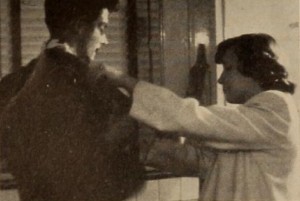
"The trials, tribulations and eventual triumphs of a teen aged young man embarked on his initial evening engagement are engagingly portrayed by John C. Sherard in First Date. Even the traditional nuisance role played by junior members of the girl's family is given a new angle — a trained flea circus on the loose. But this bit of business and others in a basically imaginative comedy are, on occasion, drawn out too much for the best dramatic pace. Outstanding in the film, however, is Mr. Sherard's use of Type A Kodachrome outdoors without the corrective filter to simulate moonlight." Movie Makers, Dec. 1949, 469.
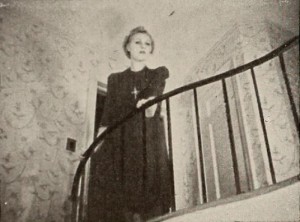
"Boy meets girl and color meets a cine club in Footloose, the latest production of the Rockville Cinema Club; the result is an able and entertaining farce comedy. In moving from black and white to Kodachrome, the members of this veteran group have taken the hurdle in their stride. If anything, the chromatic medium may be said to have added sparkle and brilliance to their plot complications and to the angles, editing and cutting with which they interpret them. Definitely keyed to the Hollywood '"screwball" school of roughhouse comedy, Footloose opens with a dynamic and delightful introduction of the players and carries on to involve a boy and a girl, an artist, his model and assorted comedy and character actors, in random but romantic complications. The pace is fast, the color pleasing and the cutting crisp and well integrated with the action." Movie Makers, Dec. 1940, 602.
"Give Her My Love is a film in black-and-white made by a student of cinematography. It is a story of young love and the strange turn that young love can take. Jeff Blyth's handling of the story made the film a strong contender for the Scenario Award. A shy boy's life in an office and his second-hand love for a girl are well portrayed as a triangle develops and then becomes a zero" PSA Journal, Oct. 1968, 49.
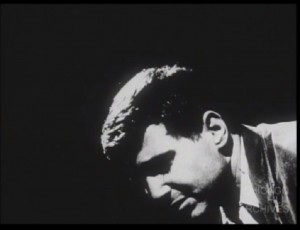
"Traces the romantic relationship between a young man and woman (played by Klugman and Judy Harris) who meet in a downtown coffee shop; their nonstop dialogue fluctuates between playful psycho-babble and sincere attempts to relay their innermost feelings." Chicago Film Archives.
"Amateur filmmaker Isaac Higginbotham's take of summer love" Center for Home Movies
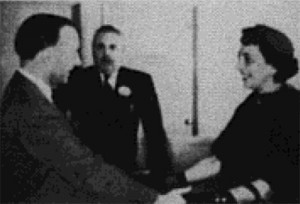
"The Toronto Movie club has cast several of its members in a comedy involving the boss, his daughter, and two bond sales-men. The usual conflicts-the daughter's choice finds some difficulty with her father. And there are two gunmen looking for easy money. A different touch of the old story, well paced, with a fine cast who move about with comic realism" PSA Journal, Nov. 1958, 46.
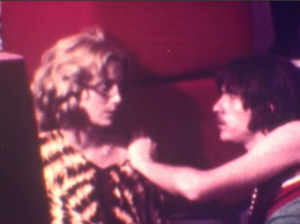
"Luz externa fue una de las producciones más ambiciosas del súper 8 mexicano. El guión se basaba en el monólogo de Ernesto, un machín jipiteca, que relata a un amigo las peripecias con su novia Raquel. Posteriormente el guión sirvió como la base del cuento con el mismo título que apareció como parte del libro El rey se acerca a su templo. Tanto la película como el cuento se abocaban a describir el abanico amplio de la juventud clasemediera urbana contracultural que había aparecido a fines de los años sesenta y principios de los setenta: los macizos que acceden al consumo de drogas, las muchachas de buena familia que se acercan a ese mundo, los nuevos conversos a la revolución social o los intelectuales que participan del ambiente con simpatía" (Vázquez Mantecón, 2012).
"Luz externa [External light] was one of the most ambitious productions of the Mexican super 8. The script was based in the monologue of Ernesto, a 'machin' hippie, that tells a friend about his adventures with his girlfriend Raquel. The script served later as the base for a short story with the same title that appeared as part of the book El rey se acerca a su templo [The king approaches his temple]. Both the movie and the short story described the wide range of the middle class urban countercultural youth that emerged at the end of the sixties and the beginning of the seventies: the strong men that had access to drugs, the girls from good families that entered that world, the new converts to social revolution or the intellectuals that sympathize with that ambiance" (Vázquez Mantecón, 2012).
"Film features a man and a woman interacting and ends with a 'Life sentence' sign" Archives of Ontario.
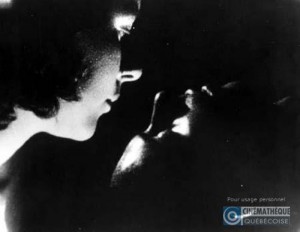
"Distinctive for its superb blend of old and new visual techniques coupled with an unusual sound track, the film was unanimously selected as the winning entry [in the amateur category at the Canadian Film Awards in 1950]" (Topalovich, 10).
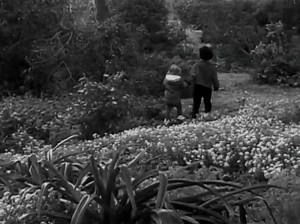
"We open with a little boy standing on a box in a telephone booth; his little friend is too busy or not of a receptive mood for the boy friend. Hurt as he is, he goes into the park and laments his failure to lure the young lady. He is about to resolve a life without women when a young (very young) girl comes into his perspective. His agile mind responds and he sets about to make an impression using many approaches of demure and sophisticated charm. His success was not exactly complete. Finally she visits the "girls" room. Her long delay is too much for the young man, so he makes another telephone call and hurriedly leaves the scene. The commentary is enhanced by the sophisticated French voice. This will be included in the Package" PSA Journal, Oct. 1962, 34.
Total Pages: 4